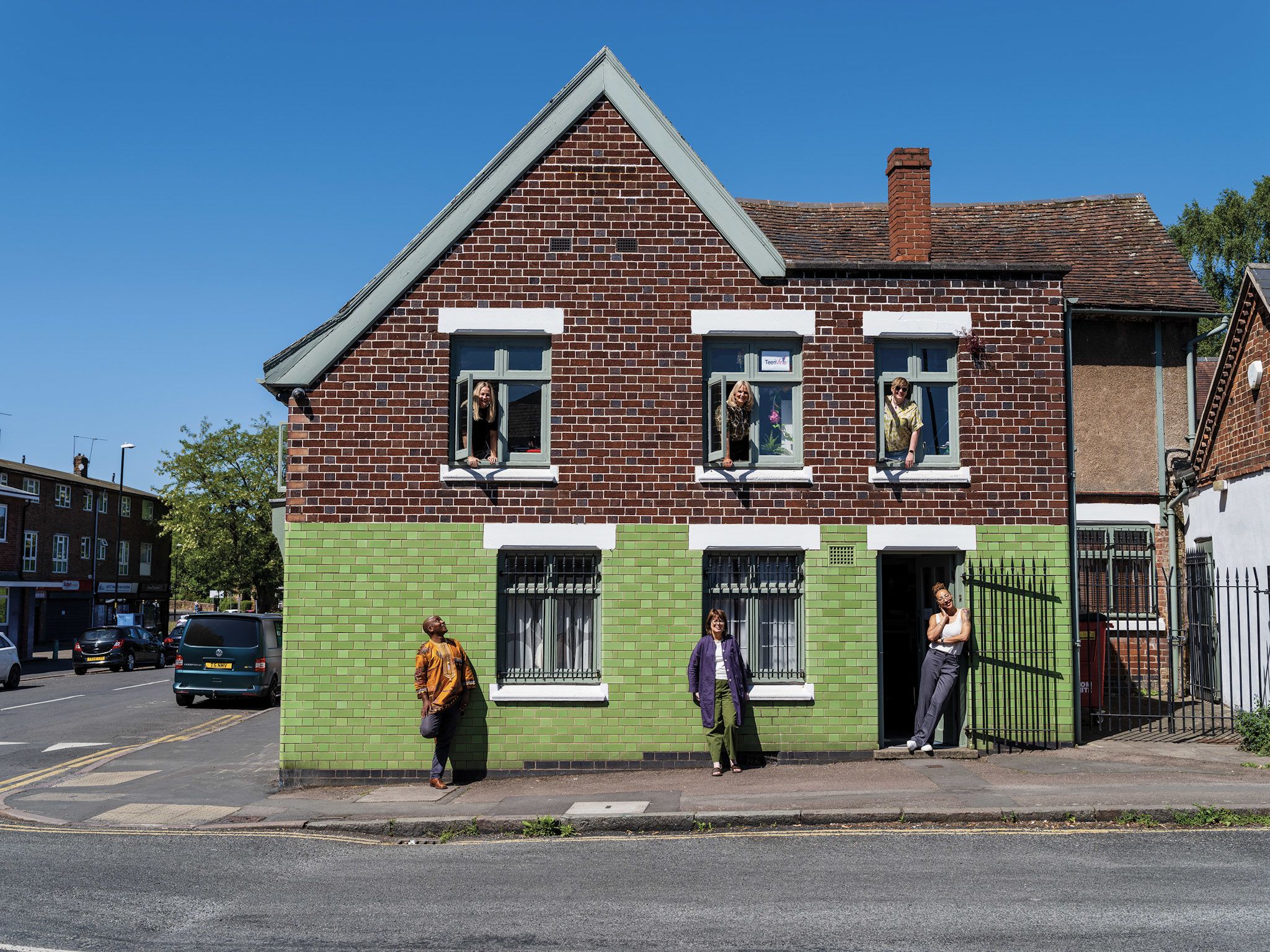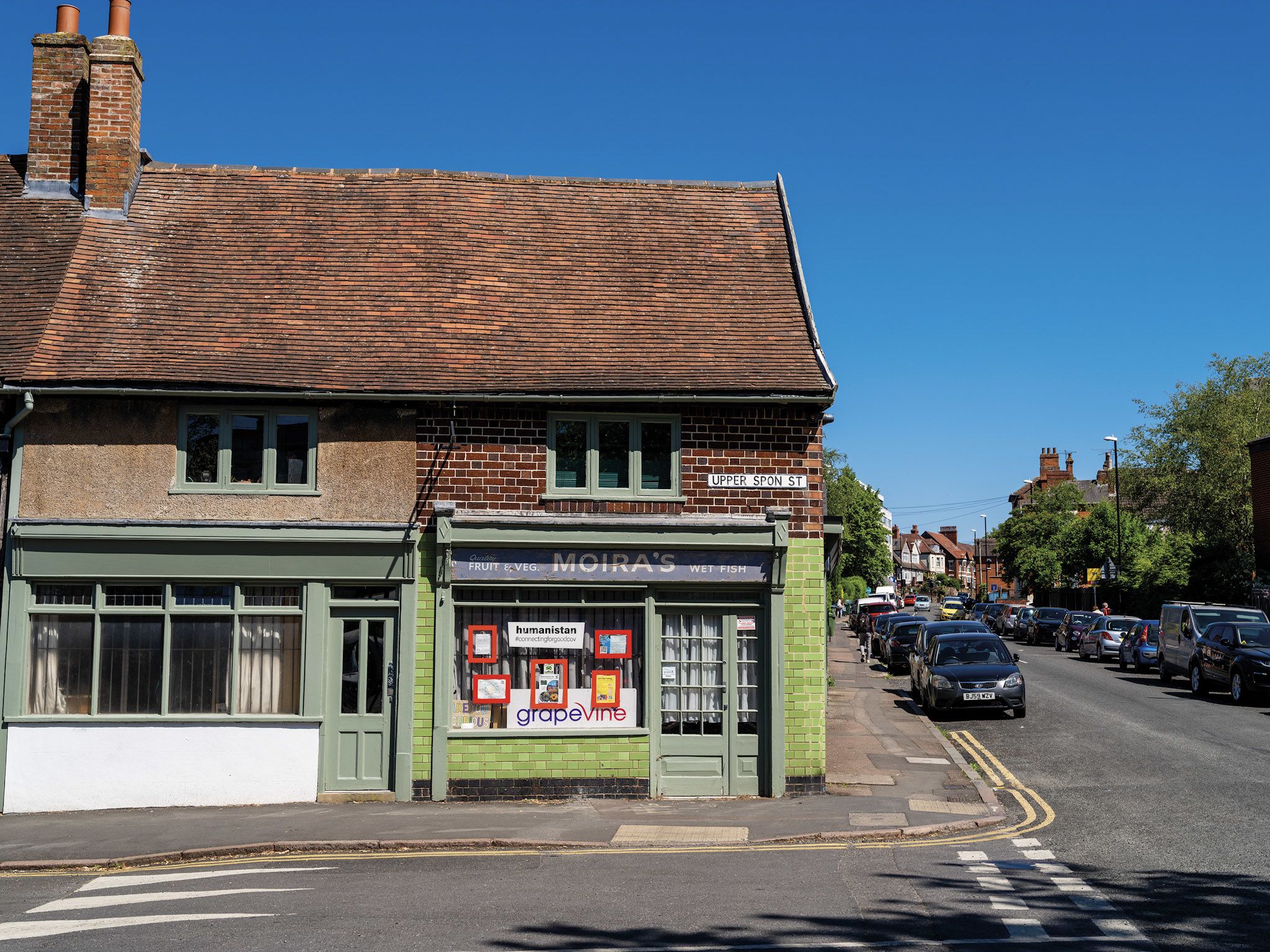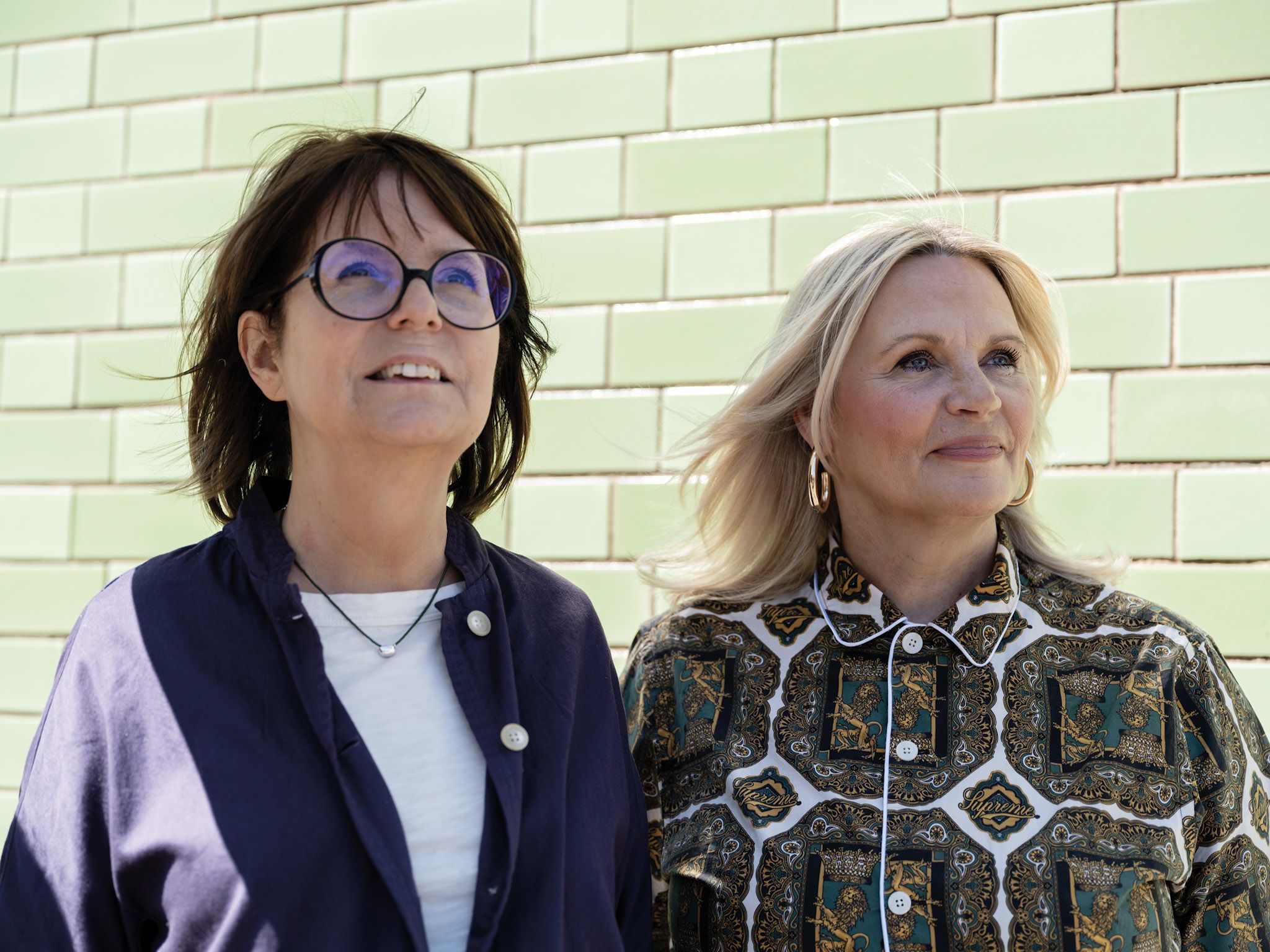Organising
around hope
Maddy Breen sits down with the team at Grapevine Coventry, to explore how community organising is rewriting the city’s story

The easy story to write about Coventry is one of the ups and downs of urban regeneration. From the Blitz and bombed out ruins, the former medieval market town became a mid-century boom-town, followed by the decline of the 1980s, before once again rising to become a city of culture. With Coventry’s history, and location in the very centre of the country, it is often subject to a lot of overly written metaphors. e
Away from the brutalism of the city centre, five minutes from the post-war ring road that has inspired poetry films, I find myself confronted by a different story: in a fifteenth century cottage, original wattle and daub walls intact.
It is in this idyllic location where I sit down with Clare Wightman, CEO, and Mel Smith, Deputy CEO, of Grapevine, a pioneering community organising charity, which has been working in Coventry and Warwickshire for 30 years.
Originally a charity supporting those with learning disabilities, Grapevine has grown into something more radical still - an award-winning organisation, working with local government and service providers, and reshaping how power works across the county.
“We saw people who had lives that were very restricted, and services that were either quite oppressive or just wrapping people in cotton wool, too paternalistic,” says Wightman.
“Our answer to help people get a better life and get control of their lives was to look outside of services and towards community. We thought there's no limit to what people will do for other people in the community that they care about.”
Wightman explains how the charity’s early work focused on the individuals, making sure that people were known for who they were, not for the names they had been called, or the medical labels they had been given.
She gives the example of a couple with learning disabilities who lived on the estate opposite the Grapevine office – an estate now being rebuilt by social housing providers Citizens, to provide affordable housing. When the couple were victims of harassment and exploitation from those around them, Grapevine’s work was not just to help ensure that issues were reported and help was given, but to create something deeper – building relationships with neighbours and the wider community, and forging a protective, caring network of people around them.
“There is power in ordinary people, ordinary life, ordinary communities to create quite a change in someone else's opportunities and prospects.”
This idea of the power in the ordinary is central across our work at Lab; over two years, our flagship Ordinary Hope project has argued that the solutions needed to tackle the great challenges faced by both our government and our society can be found in the streets, homes and parks of the country.
As Wightman says, “The answer is where the problem lies - the poison and the antidote grow side by side.”
Both Wightman and Smith emphasise how these early years showed how ongoing learning and reflection were key to Grapevine’s success, with a turning point when Wightman went to the United States, to see Make the Road New York, a migrant-led progressive organisation which combines organising with legal advice.
“We had been running projects where we've connected people one by one to others in their community, but what if we were doing community organising? We could start a movement for connection, we could start a movement against isolation. It would be so much more powerful, and so much more sustainable.”
Smith laughs, “I remember getting these messages when Clare was in New York, my god, I think we're on to something here!”.

Harnessing this excitement and energy, Grapevine created Connecting for Good (CfG), now a movement of 18 community-led initiatives creating stronger, fairer Coventry communities in which local people come together to act on their challenges. It has allowed people to enter spaces they otherwise felt excluded from, and to be there in a position of power. They’re advocating for what they need, building what they want to see whether its woodland brought into community ownership or a more inclusively designed city centre.
A similar ethos is seen in Grapevine’s Walk and Talks – a method designed to get decision-makers out of the boardroom and onto the streets, walking alongside the people they serve. At the same time, Grapevine arranged coaching for local people to tell compelling narratives, empowering them to reclaim the stories of their city.
Power beats at the heart of their work.
“Government and the public sector talk a lot about community power and how to create the conditions where everyone can thrive. But you need a really robust understanding of what community power is because power isn't something that the government can redistribute.”
“It’s not about being invited into government spaces or public sector spaces on their terms to have your say. Power must be shaped and seized by communities, and they need to claim spaces. So our question at Grapevine is, how do we best help communities and the people in them claim power and take action over the challenges that they're facing?”
A sentiment which feels even more important in the age of devolution.
As Smith says, “You go into a community, and start to build relationships and listen to concerns and the things that they care about, but you can't always predict what they're going to want to act on. Often government or services will have a set agenda or will create agendas, but the opportunity that we have in organising is that you bring people together without any of those agendas and truly start to understand what are the things that really bother them, what are those things that they really want to act on in their community.”
Smith goes on to detail how building trust takes time and energy, particularly when communities feel like nothing will change. As well as going through the process of identifying what issues are both worthwhile and winnable, the core of Grapevine is about building relationships.
“People show up for relationships, not issues,” says Wightman.
It’s a human way of looking at unity, in a world which feels fractured across each side of the political spectrum.
They go on to talk about their collaboration stations, monthly events hosted by community members, where people could arrive and discuss what they cared about.
“It was important that they didn’t centre the issues, instead they centred the welcome – what would it feel like, how inclusive would it be, how would you meet and how would you meet them. Then connections flourish.”
Key to this is a learning process, and that passion for ongoing learning and reflection is apparent in the team. Coaching, training and discipline are essential to their success.
It can be frustrating, as Wightman says
“Others see the surface results but they don't know what it took to get there and they just think, oh great, we'll plug our public health campaign into that. But our work is relational and context-specific.”
“The dream for the city is that we will have helped local people create a supportive, powerful structure within which they can create a fairer city.”
Looking further afield, I ask how can community organising fight the rise of populism in the UK?
“Those voting for Reform are scared, and have been told by leaders that whatever challenges they’re facing, are the fault of other people. In a way, they’re being organised by fear, but we can organise around hope.”
Leaving the medieval cottage, back under the underpass and heading towards the city centre, I think about the story of regeneration, so easily applied to Coventry. Regeneration and the success of the city isn’t simply about sticking something new in place and hoping for the best.
Much as the Hollington sandstone unites the two cathedrals into one church, or as the walls of Grapevine’s office move from fifteenth-century wattle and daub to 1930s rock lather, it is a story about connection.
The real story of transformation isn't found in the concrete and steel of urban renewal. It's happening in the spaces between – in conversations between neighbours, in the trust built one relationship at a time, in the quiet revolution of people claiming power over their own lives.

